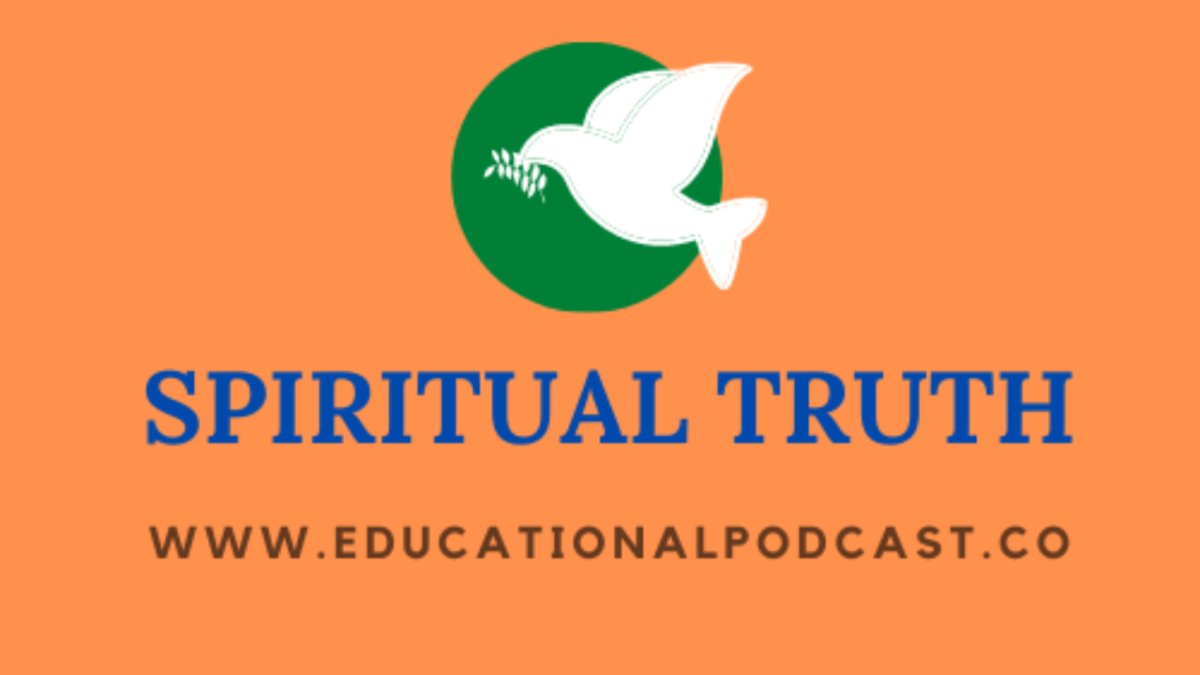The Little Flock of Yahweh are those Faithful to Yahshua and Obedient to His Words per the Bible
Who is Yahweh’s Little Flock to which Yahshua Refers?
Hello and welcome back to Educational Podcast, the podcast where we dive deep into the genuine truths of the Bible for free, always. I’m Elder Dan, your host. Today, we’re unpacking a powerful verse from Yahshua Himself in Luke 12:32: It says “Do not be afraid, little flock, for your Father has been pleased to give you the kingdom.” Yes, there’s so much to unpack here! So, settle in, give it your all ears, and let’s explore what it means to be part of Yahweh’s true little flock.
If you would rather listen to this, just click the play button below. 🙂
Episode is also available to listen free in other Pod Networks below.
Let’s start with that phrase—little flock. It is so tender, isn’t it? When Yahshua the Messiah says this, He’s not addressing a massive crowd of religious elites or the popular, mainstream followers of His day. He’s talking to a small, dedicated group of disciples—ordinary people, fishermen. Yes, they’re folks who were often overlooked by society. These were not the influencers of their time, racking up followers or filling megachurches. No, this little flock was humble, unassuming, and fiercely devoted to the truth Yahshua was teaching.
And here’s the thing—Yahshua doesn’t say “massive herd” or “global congregation.” He says little flock. That’s intentional! It is a clear and powerful reminder that Yahweh’s kingdom is not about numbers, popularity, or worldly clout. But rather, it is about a remnant, a small but faithful group who hear His voice and follow Him, no matter the cost! In a world obsessed with going viral, Yahshua is saying, “My kingdom is for the few who choose the narrow path.”
Now, let’s get real for a second. In today’s world, it’s very easy to think that being part of the heavenly flock means joining the biggest, loudest, or most popular religious movement. You know what I’m talking about—those mainstream groups with polished branding, packed pews, and pastors who are basically looking and sounding like celebrities, if you will. But Yahshua didn’t come for the mainstream. He didn’t chase trends or build a megachurch. He called out to the little flock—those who were willing to stand apart, to question the status quo, to seek truth over comfort.
I mean, think about it. The religious leaders of Yahshua’s time? They were the mainstream. The Pharisees and Sadducees had the crowds, the rituals, the power. But Yahshua did not cozy up to them. He challenged their traditions, their hypocrisy, their obsession with outward appearances. His little flock was not blindly following the popular religion of the day. They were listening to Him—the Good Shepherd—and that made them different. Very peculiar, even.
So, what does this mean for us today? Well, it is a wake-up call. Being part of Yahweh’s little flock is not about signing up for the most popular church or tagging along with what everyone else is doing. Yes, it is about discernment. It is about you asking yourself, “Am I truly following Yahshua, or am I just going with the flow of what’s comfortable and culturally accepted?” Because let’s be honest—mainstream Christianity and popular religions, with their mega-conferences and social media aesthetics, can sometimes feel more like a brand than a calling.
Yahshua’s words in Luke 12:32 are a promise, though. He says, “Do not be afraid, little flock.” Why? Because the Father in heaven, Yahweh, is pleased to give you the kingdom. That’s huge! You do not need to be big, powerful, or popular to inherit Elohim’s promises. You just need to be obedient and faithful. You just need to be part of that small, devoted group that always hears His voice and follows, even when the world thinks you’re insignificant. Yes, even when you are labeled weird by mainstream Christianity and many other big spiritual groups and popular religions out there..
I love how personal this is. Yahshua the Messiah calls us His flock—like sheep who know their Shepherd’s voice. And in John 10, He says His sheep hear Him and follow Him. That’s the mark of the little flock—not blind allegiance to a system, a denomination, or a tradition, but a living, breathing relationship with the Shepherd Himself. Yes, it is intimate. It is real. And it’s not about being part of the biggest herd; it is about being known by Messiah Yahshua.
So, if you are listening right now, and you are wondering, “Am I part of this little flock?” Here’s my challenge to you: Look at your walk with Yahweh, the Elohim in heaven. Are you chasing His truth, even when it’s unpopular? Are you truly listening to His voice, or are you caught up in the noise of what everyone else is doing? Yes, the little flock is not about fitting in—it is about standing out for all the right reasons. It is about courage, humility, and a relentless pursuit of Savior Yahshua and His genuine teachings over the world’s applause.
Friends, being part of Almighty Yahweh’s little flock is a privilege. It is a call to trust the Shepherd, to embrace the smallness, and to know that the kingdom is yours—not because you are big or powerful, but because the Father delights in you. So, do not be afraid. Stay faithful. Stay true. And keep following the Almighty One, Yahweh, who calls you by name.
Friends, if you’d like to continue this conversation or share your thoughts on this topic, leave a comment below or reach out to me directly. To read and discover more authentic biblical truths, please click here to visit our sister website. Also, feel free to listen to or read our previous eye-opening episodes on this site.
That’s all for today’s episode of the Educational Podcast, folks. If this resonated with you, share it with someone who needs to hear it or read it. And as always, keep seeking, keep questioning, and keep following Yahshua, the Good Shepherd. Until next time. Do not forget to always stay faithful and obedient to Yahshua, the Savior of humanity.
Brethren, before I go, let me pray this prayer for you: May Yahweh bless you and keep you; may Yahweh make His face shine upon you and be gracious to you; may Yahweh lift up His countenance upon you and give you peace. I humbly pray all these things to Yahweh through Yahshua the Messiah, our Master and coming King, amen. Kindly keep praying for the shalom of Israel. Take care. Halleluyah!



